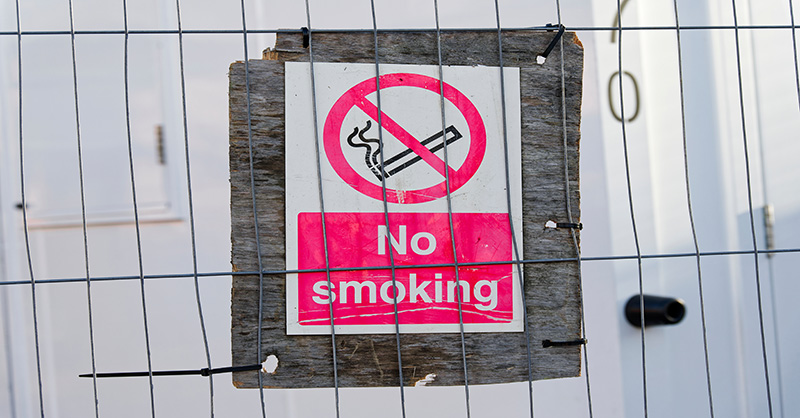Prepare to Care for Campers

Camp is often the highlight of the year for kids of all ages. But injuries and illnesses that can occur while there can dampen their spirits in a heartbeat.
With registered nurses on staff and a properly equipped health center, campers and staff members can have peace of mind knowing they’ll be well taken care of should ailments occur. Use these guidelines to ensure your camp is prepared to care for campers.
Designate an adequate health center
One to two weeks prior to the beginning of a camp session, the camp director should ascertain how well supplied the health center is and determine whether additional first aid inventory is needed. The following facilities/equipment should be readily available:
- Clean room or facility in which to administer first aid, isolate a contagious or nauseous child and administer routine medications
- Water source
- Ice or the ability to keep a supply of ice frozen
- Storage cabinet with a lock
In addition, the following paperwork should be bound for permanent record-keeping through the statute of limitations:
- Copy of RN license and personal liability insurance policy for each nurse
- Routine Drug Administration Records; enough for scheduled medications only
- Lined documentation sheets to record information such as care given to staff and campers, calls made and any other pertinent details. Each page should include columns headed as follows: Time, Name, Complaint and RX. Nurses should date and sign the top of each page and initial each entry. Be sure to note “staff” under appropriate entries.
- Current standing doctor’s orders. Most doctors will not issue blanket “standing orders” to a camp facility. The camp director should confirm that each nurse hired has an established working/professional relationship with an internist, general practice or family practice physician who will issue an order authorizing the nurse to administer over-the-counter medication such as aspirin or antacids without standing doctor’s orders. If this is a resident camp, the camp should have these orders on file. If not, 12 weeks prior to the beginning of camp, the camp director should confirm that each nurse that will operate the health center has a physician’s written order to administer over-the-counter medications, and the nurse should be directed to bring standing doctor’s orders with them to the camp. The camp should have the medications on hand that the doctor orders (i.e. acetaminophen, etc.)
Sample Health Center Supply List
Emergency
- AEDs
- Cold compresses
- CPR Masks + Ambu Bags
- Nebulizers
- Pulse Oximetry Monitors
Orthopedic
- ACE Wraps
- Crutches
- Finger Splints
- SAM Splints
Skin Care
- Alcohol Wipes
- Bandages + Band Aids
- Gauze
- Tape
- Tweezers
Medications
- Acetaminophen (Tylenol)
- Ibuprofen (Advil, Motrin)
- Diphenhydramine (Benadryl)
- Polyethylene Glycol (MiraLAX)
Diagnostic
- Blood Pressure Cuffs
- Stethoscopes
- Thermometers
- Rapid Strep Test Kits
- Urinalysis Test Kits
Infection Control
- Gloves, Non-Latex
- Hand Sanitizer
- Sanitizing Wipes
Establish emergency procedures
The camp director should prepare written instructions for emergency care, and each nurse should familiarize themselves with the emergency procedures prior to the beginning of camp. The emergency procedures should be as specific as possible and include:
- A written list of phone numbers for emergency care
- Directions to emergency facilities
- Mode of transportation that will be used to transport patient
- Time it takes to travel from camp to emergency facilities
- Who will drive the vehicle used to transport the patient
- Which vehicle will be used to transport the patient
- Who will accompany the patient (it is best for the nurse to remain at camp in case of additional emergencies)
Operating the camp health center
A nurse must be available 24 hours a day. Because of this, having two nurses on staff can make this task much more manageable.
If there is only one nurse, set up hours (for routine visits) when they’re available. If the nurse must leave camp for any reason, someone else must be assigned to handle first aid duties and have keys to the medication cabinet.
The nurse does not always have to be present in the health center (in fact, it is helpful for them to circulate around the camp), but a written notice must always be posted at the health center indicating their whereabouts should they be needed in an emergency.
Offer routine availability
Upon arrival at the camp, a 3” x 5” card should be prepared for each child, listing the type of medication and times of dosages to be administered. These can be easily stored and used as a reminder that each child has received his/her medication at the proper time.
After the campers’ medications are in the nurse’s possession following registration, it can be determined when most of the campers will need to report for their medications, and a daily routine can be established and communicated to camp counselors.
Most medications are dispensed before or after meals and at bedtimes. Therefore, to keep campers’ medications on a regular schedule, it’s essential that the nurse be in the health center either before or after meals and at bedtime.
Establish nurse requirements
Camp directors must require that each registered nurse (“nurse”) hired to work in the camp’s health center signs a written form acknowledging the following statements:
- It is the nurse’s professional responsibility to maintain and operate the health center according to medically accepted procedures.
- The nurse will notify the camp director or assistant director immediately if any medical equipment and/or medical supplies necessary to operate the health center are not available.
- The nurse is required to immediately report any serious health or injury situations to the camp director and the facilities director.
Head lice
Head lice can be a major problem for camps. During training, counselors and staff should be briefed by the nurse regarding lice and the proper treatment for it. The camp should also have written policies regarding the treatment of head lice.














